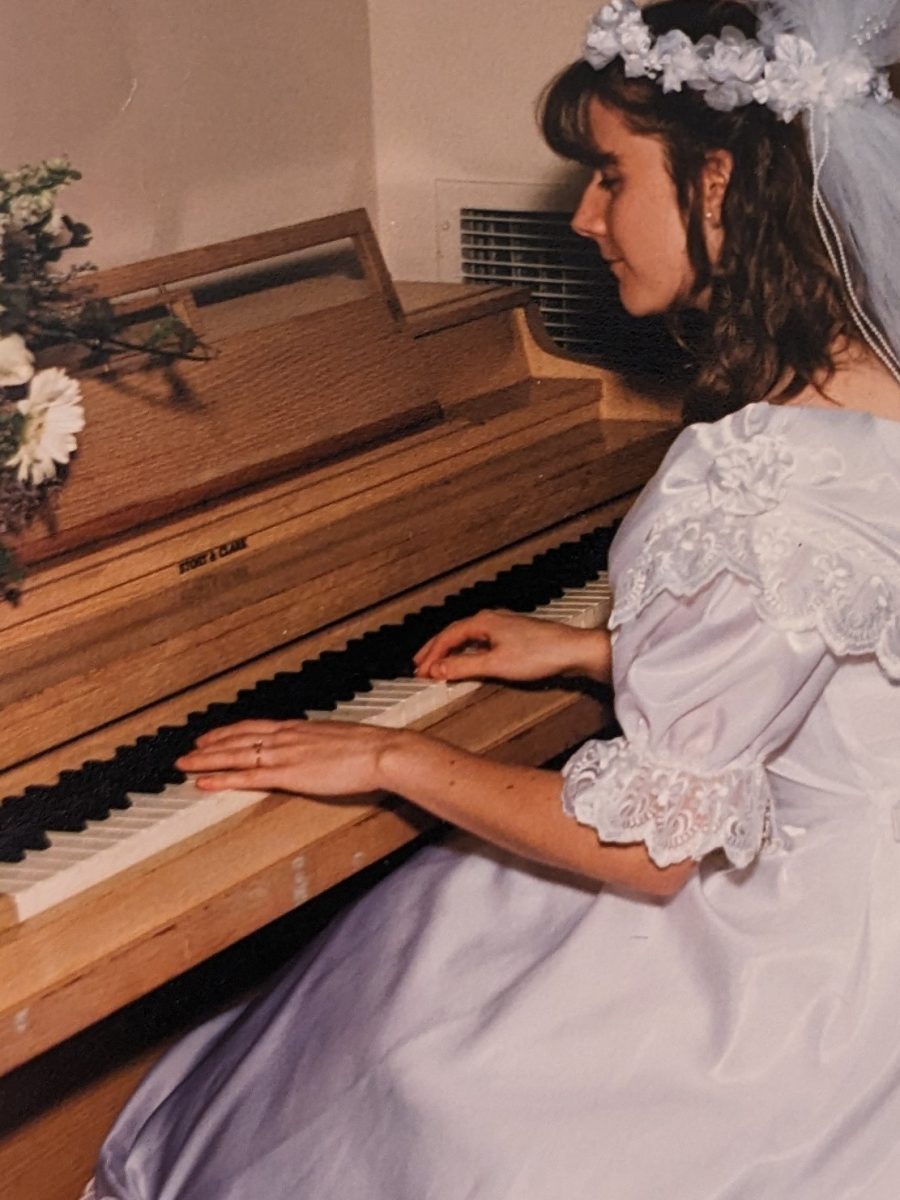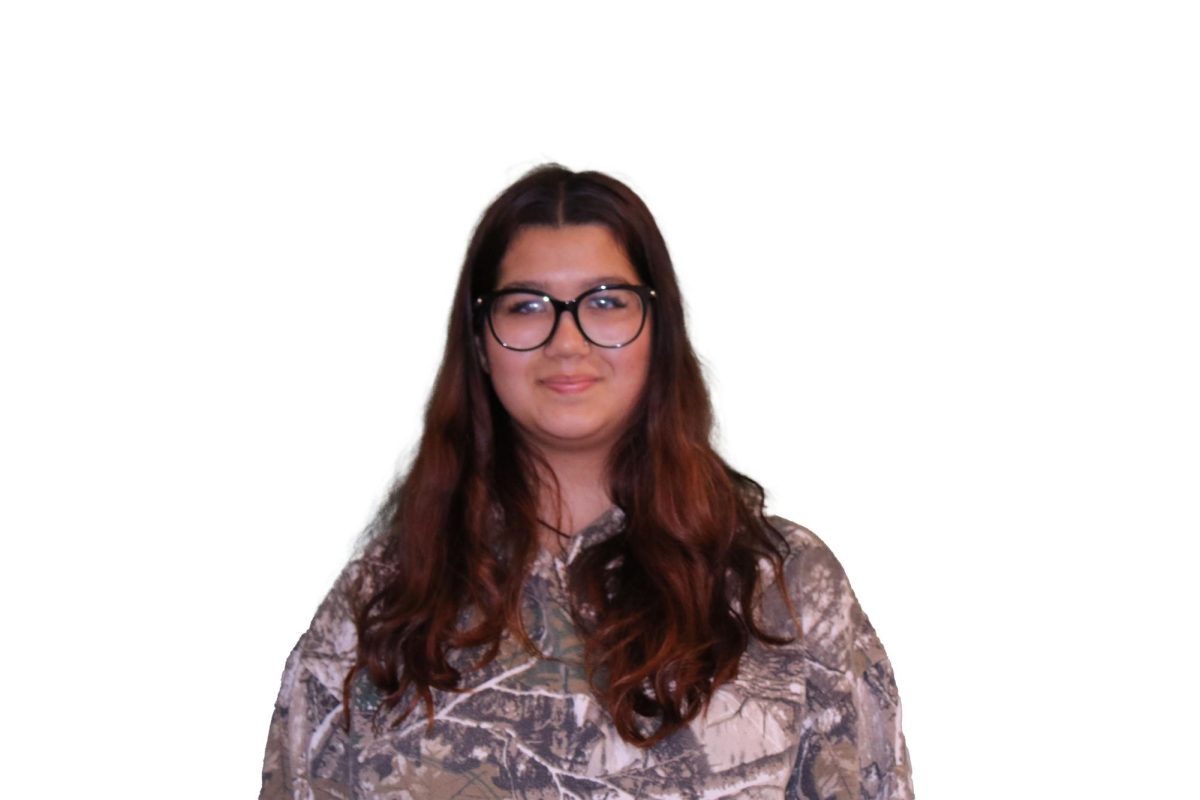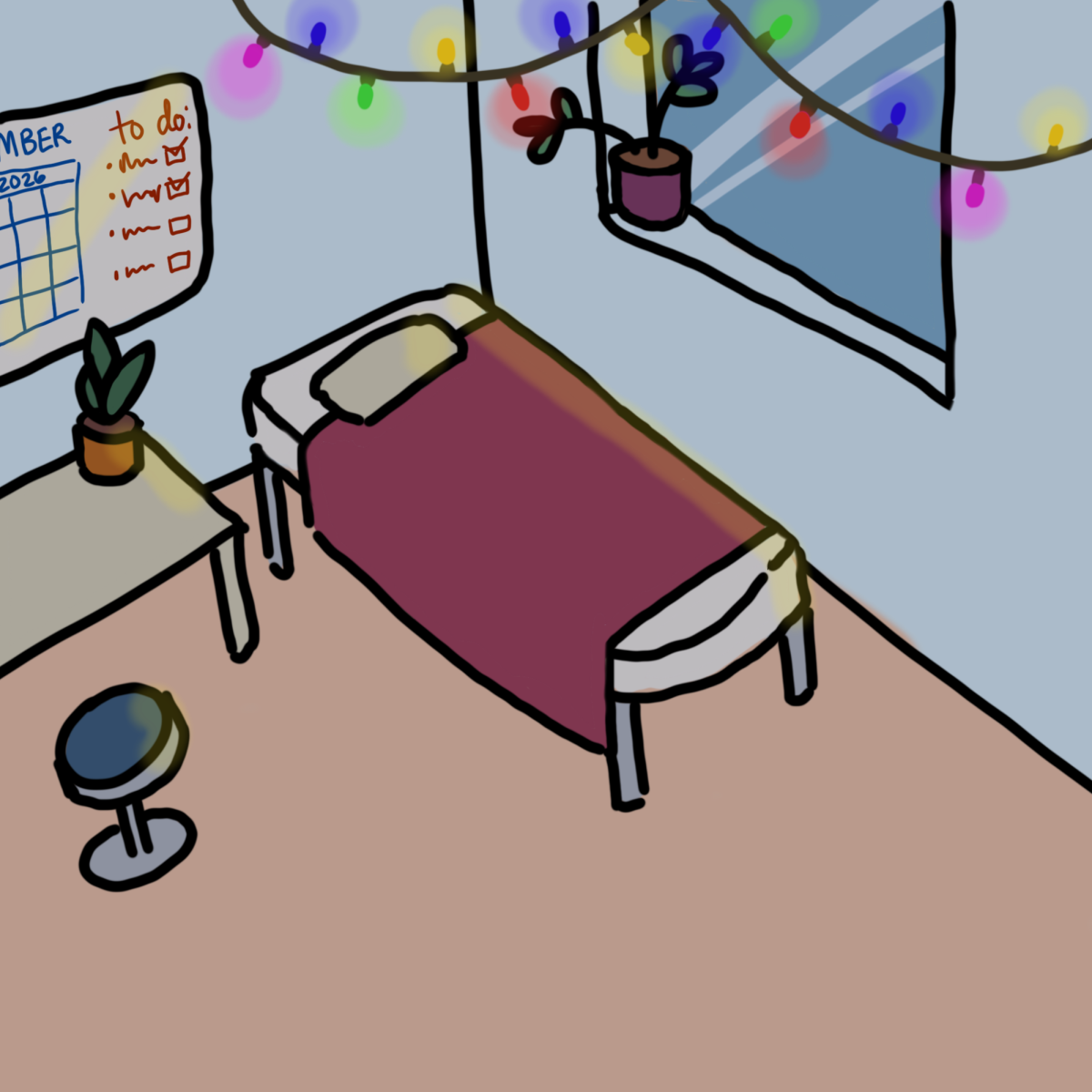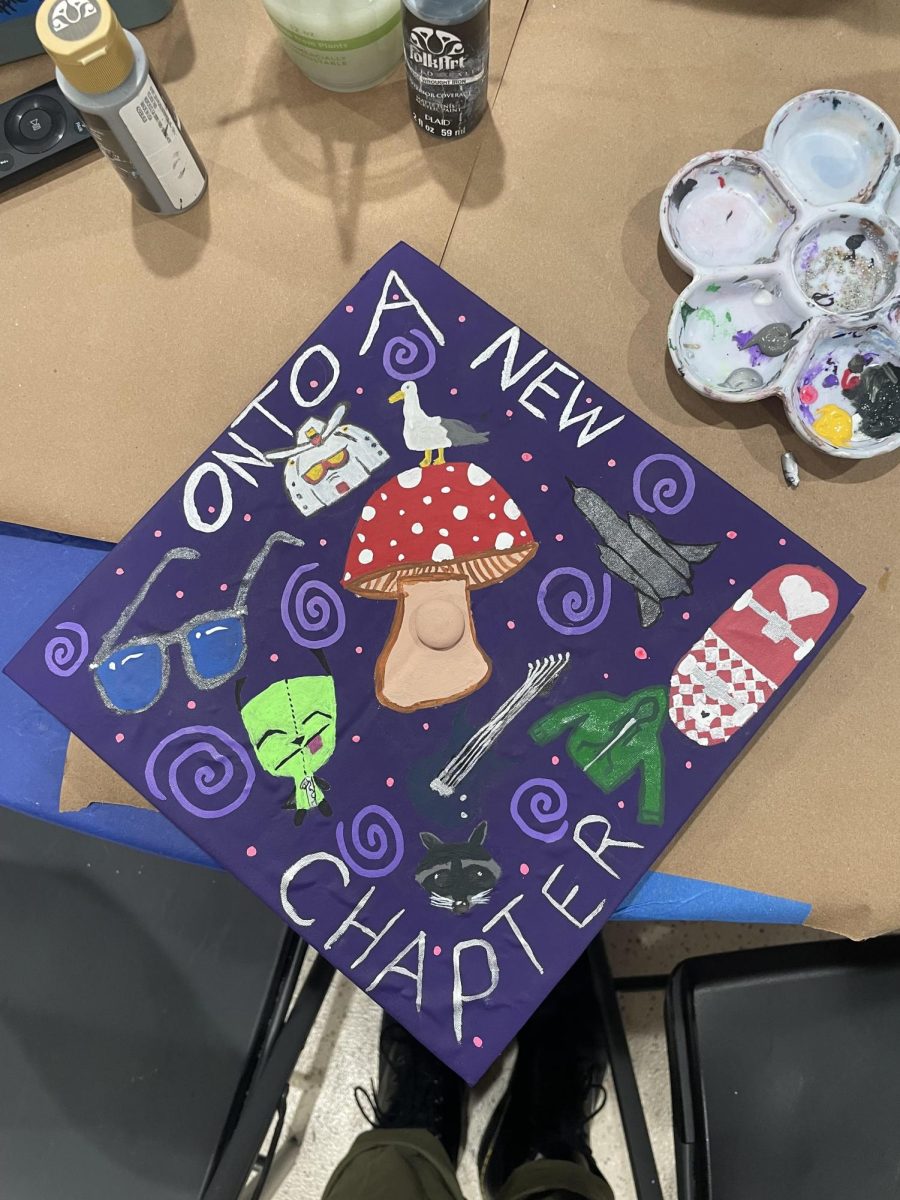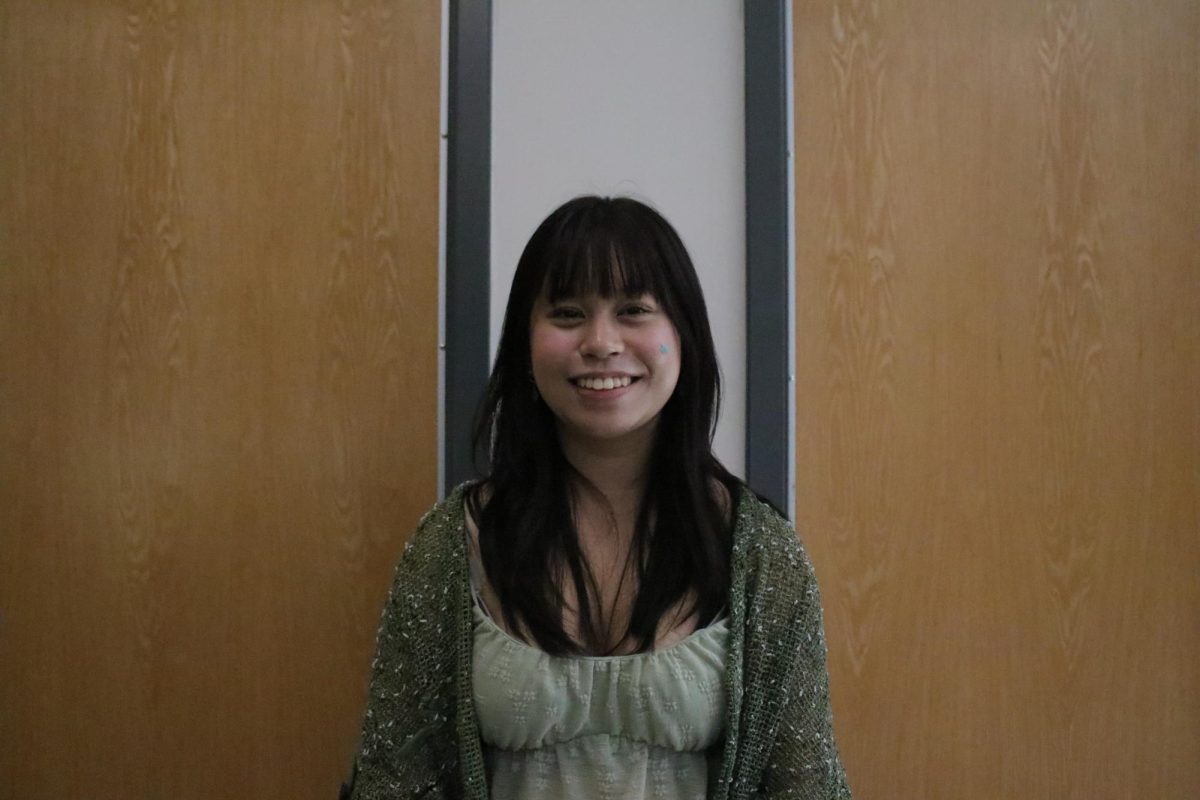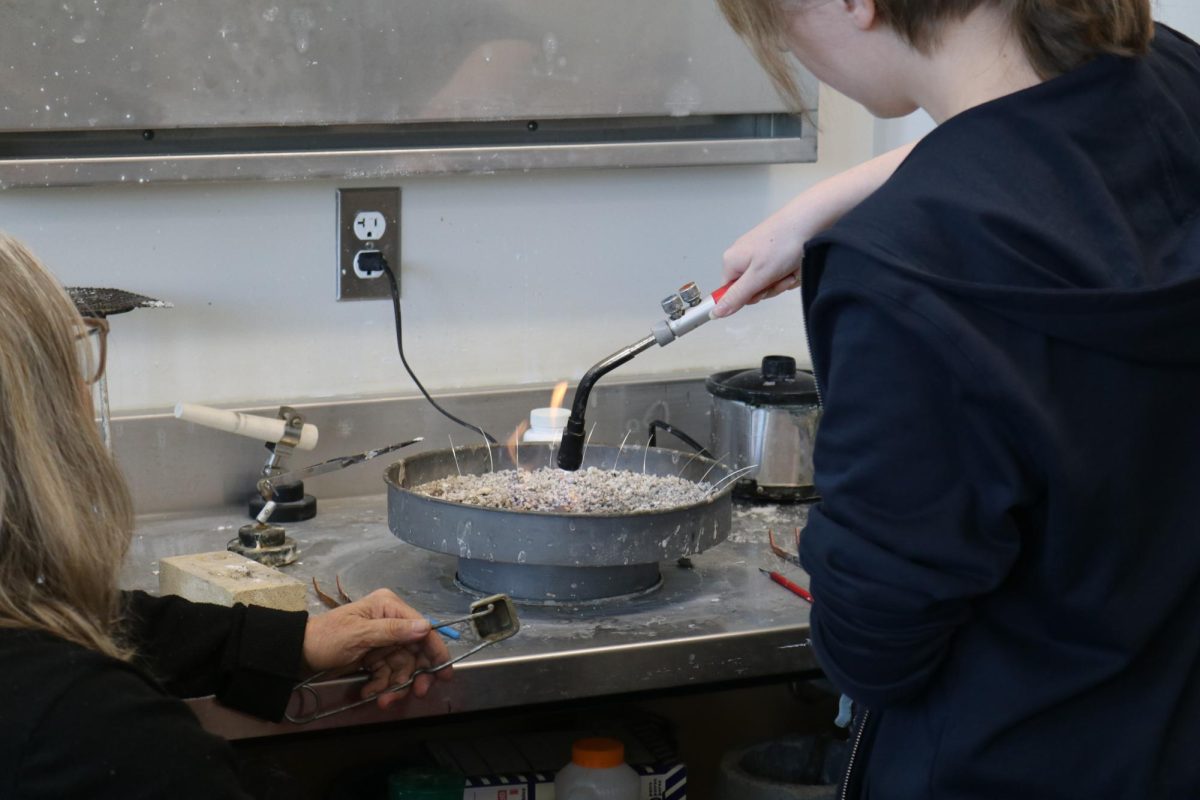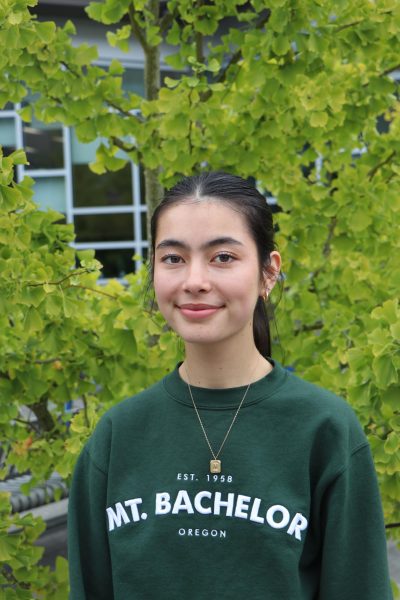Hans Christian Andersen once said, “When words fail, music speaks.” This quote is currently posted in Shorewood’s music room, a place where instruments are played and angelic voices sing. This very room is where numerous core memories were made by Jill Owen, who not only teaches precalculus, but also has a passion for music.
Where it all started
It can be assumed that music enriches her life if you zoom in on the small details that make up room 3107. The small music note that sits above the equation-filled whiteboard watches from atop the blue graduation cap. Or maybe the way Owen’s eyes light up every time she mentions music, even though her body radiates nonchalance.
The musical influence from her family was limited, but passion erupted when she heard the music that echoed at church. At just four years old, Owen wiped away the dust collecting on the refashioned player piano, which was popular at the beginning of the 1900s. “I didn’t really have anybody in the home who was doing a lot musically,” Owen said. “I started dinking around on the piano, so my mom taught me out of the basic beginner books.”
After seeing her best friend taking real piano lessons, she had to convince her parents to hire a formal teacher as well. Once lessons started, she progressed rapidly and began to play for school, at events, competitions, and even a wedding when she was just twelve. Music was starting to trickle into every area of her life.
The Tales of Jill Owen
“I remember in eighth grade, there was a Snohomish County Music Teacher Association scholarship competition [where] I competed,” Owen said. “I got first place out of all the eighth graders. I didn’t realize that all the people who won had to perform in a concert the next day, and I was so nervous… I totally blanked when I was onstage.” There is a feeling of dread in your stomach as the audience stares at you, waiting for a melody to leave your instrument. This is a story nearly every musician can relate to.
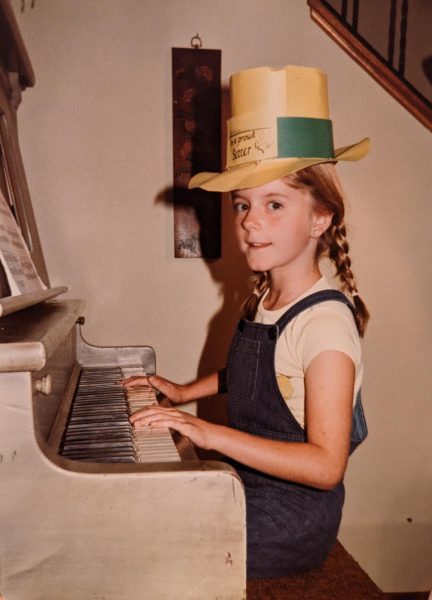
Being sick on the big day of the concert is another scenario that musicians fear, but Owen pushed through and was able to make it a great success. “I woke up that day, and I was so sick,” Owen said. “But I was the accompanist for all the choir, and I was also in the band. I was also doing a piano solo, so I was like, ‘Oh my gosh, I’ve got to be at this concert.’”
With a runny nose and sore throat, being nervous for a concert doesn’t seem like a priority. For Owen, she played her piano piece the best she had ever played because the nerves were completely taken over by her unfortunate bout of sickness.
Owen has several instruments under her belt, including the piano, making her passion for music undeniable. “In fifth grade, we had a violin because my brother had played the violin. So, when it came time to pick my instrument at the old Sunset Elementary School, I was told to play violin,” Owen said. “In seventh grade at Einstein, I [would] see the band kids coming into the orchestra room, and I was like, ‘Oh! I really want to play the trumpet.’”
Unfortunately, the trumpet comes with some difficulties when attempting high notes, so she made a switch to the alto saxophone. Owen made it clear that switching instruments was the best decision she could have made: “Oh, gosh. Wow. That was my favorite. I loved playing [the] saxophone.” Her enthusiasm was apparent, and the excitement on her face displayed her love for this instrument.
Accumulating achievements
Accompanying the choir was another way that Owen put her piano skills to good use. “At sunset [elementary school], there was this early bird choir. You could come before school two days a week,” she said. Later on, during the beginning of high school, she moved to Germany and went to an American high school, where students were children of people in the military. Here, she participated in the band and accompanied the choir.
Owen had her heart set on music and had no intention of dropping her musical career after high school. After returning from Germany, she got into the University of Washington and auditioned to be in the music department, which would allow her to continue taking lessons. “I also had to… take the first year music theory and ear training and be in a performance group,” she said. “They had me audition to be the accompanist for the choir.”
After a lifetime of solely playing classical music, Owen got involved in the campus ministry groups, where improvisation was key to their style of playing. She continued to play this style on the piano for twenty more years, where she helped lead music for the kids at her church.


